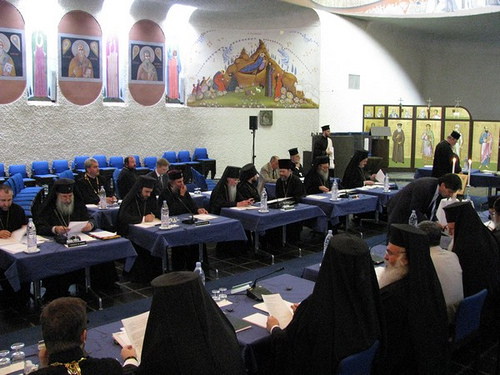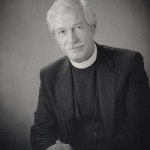Deprecated: trim(): Passing null to parameter #1 ($string) of type string is deprecated in /home/aoiusa/public_html/wp-content/plugins/sexybookmarks/public.php on line 388
Deprecated: trim(): Passing null to parameter #1 ($string) of type string is deprecated in /home/aoiusa/public_html/wp-content/plugins/sexybookmarks/public.php on line 394
Deprecated: trim(): Passing null to parameter #1 ($string) of type string is deprecated in /home/aoiusa/public_html/wp-content/plugins/sexybookmarks/public.php on line 400
On the Roman Catholic site AsiaNews, Nat da Polis files a report on the Fourth Pre-Conciliar meeting of Orthodox hierarchs who assembled last week in Switzerland to discuss the problem of the “diaspora.” Da Polis views the pending trip of Russian Orthodox Patriarch Kirill to the Ecumenical Patriarchate in Istanbul as a “significant step” in sorting out the disarray. Story follows.
Historic Orthodox decision, migrant communities to have their own bishops’ conferences
Istanbul (AsiaNews) – The first of two meetings scheduled for 2009 was held in Sabezy [Chambésy, Switzerland, ed.] to prepare the much awaited Pan-Orthodox Synod. In agreeing to set up Bishops’ Conferences for Orthodox Diaspora communities, the meeting reached a historic decision.
According to existing rules, Orthodox believers living outside their country of origin fall under the jurisdiction of the Ecumenical Patriarchate. However, the large-scale migration that followed the collapse of the Iron Curtain generated quite a few problems to those who are in charge of Orthodox life in the Diaspora because of the very close association of the Christian message to the ethnic origin of the faithful, a situation that has often been misunderstood or exploited with political and economic repercussions.
By a unanimous decision, Orthodox bishops’ conferences will be set up in the Diaspora and come under the chairmanship of the oldest metropolitan in Constantinople. If he is absent, then he will be replaced according to the canons of ecclesiology. The creation of new bishops’ conferences will thus reflect the new circumstances that have emerged in the Diasporic world.
All decisions will have to be based on the principle of unanimity of all Churches, each of which will be represented by their own bishops. Members in bishops’ conference will be bishops recognised by all Orthodox Churches. Constantinople will remain the coordinating centre for all the conferences.
A clear signal of the new situation came when it was reported that Kyrill, the new Patriarch of Moscow, will make his first foreign trip to Constantinople on 4 July.
The proceedings, chaired and skilfully directed by the Metropolitan of Pergamon Ioannis Ziziulas, [Metropolitan John (Zizioulas) of Pergamon, ed.] took place in a calm and constructive atmosphere, like never before, and were permeated by a desire to finally set a common path for Orthodoxy as a whole in the face of the challenges of today’s world. Continue reading

